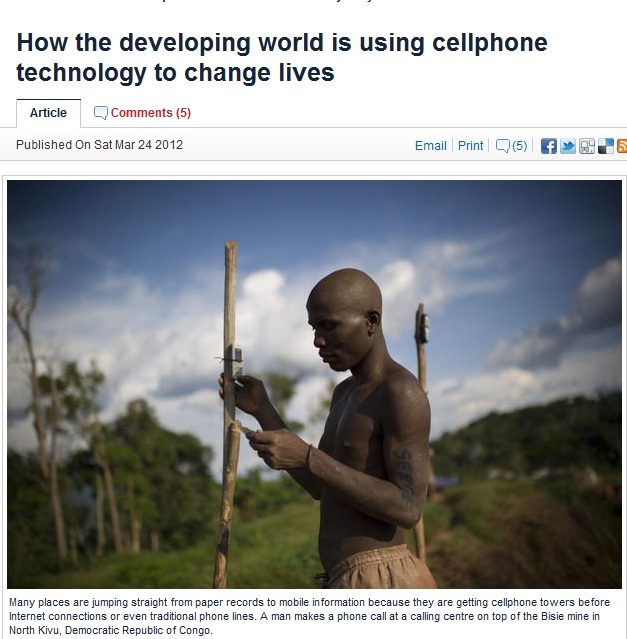FrontlineSMS has recently been featured in an article in the Toronto Star, which provides an overview of information and communication tools being used for development (ICT4D). You can find an extract of this article below, and the full version is available online here.
In Nigeria, a young girl can ask questions about sex discretely through SMS and get accurate information. After the earthquake in Haiti, survivors in remote towns could receive money for food straight to their cellphone. In Senegal, election monitors sent updates on polling stations through their mobile phones, revising an online map in real time with details about late openings or worse. Projects like Learning about Living in Nigeria, MercyCorps in Haiti and Senevote2012 in Senegal are just a few examples of how the rapid spread of mobile technology has changed life in the global south.
Many places are jumping straight from paper records to mobile information because they are getting cellphone towers before Internet connections or even traditional phone lines. This means that for the first time it’s possible for a doctor in Guatemala City to monitor a newborn baby in a rural part of the country...
In 2001, just eight out of 100 people in the developing world had a mobile phone subscription. Now, nearly 80 out of 100 do...
FrontlineSMS
This software allows anyone to set up their own communications hub to send mass messages, manage automated SMS systems and collect data from the field. FrontlineSMS allows users to connect their mobile phone to a computer, transforming communication into something more powerful and manageable.
“If you go to the developing world and you look at how cellphones are being used you can really see that people are already doing this kind of organizational management, communicating with stakeholders, communicating with people they’re working with and for,” said spokesperson Laura Hudson.
The system enables easier management of SMS messages and also allows users to set up mailing lists, collect data and code automated reply systems. Traditional procedures involved checking in over the phone with remotely dispersed members of, for example, an aid team.
“Instead of that they can send an SMS. It’s cheaper for them, it saves time and the data can go straight into their report,” said Hudson.
FrontlineSMS was used to coordinate aid response after the 2011 floods in Pakistan and to manage reconstruction in Haiti. It has also been used to remind HIV patients of best practices and nutritional information.
Many other valuable technologies are featured in the full article from Toronto Star.

